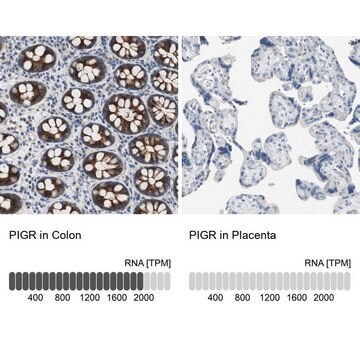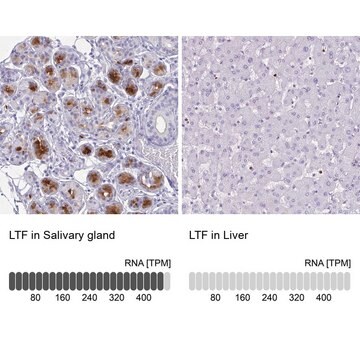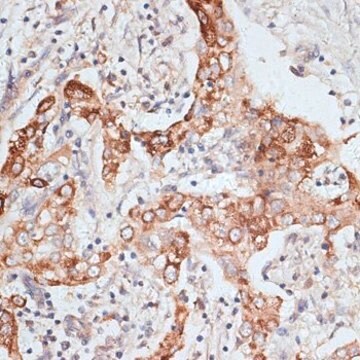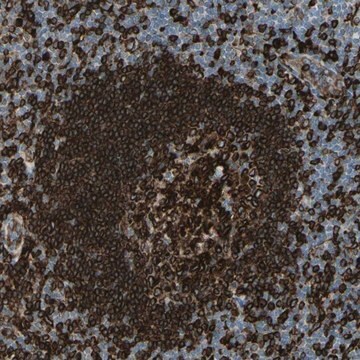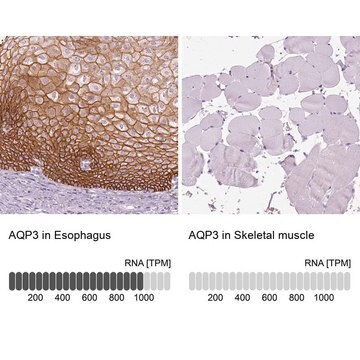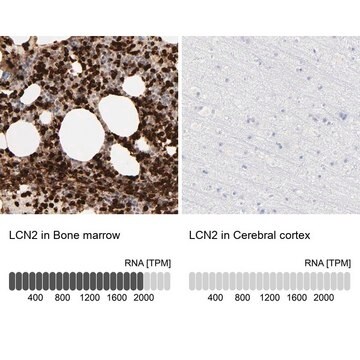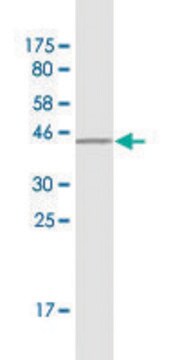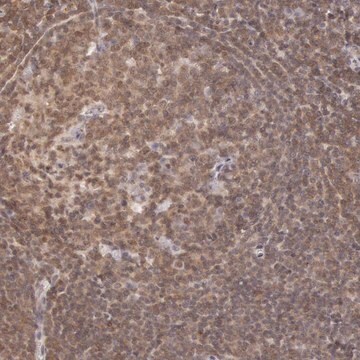HPA012012
Anti-PIGR antibody produced in rabbit

Prestige Antibodies® Powered by Atlas Antibodies, affinity isolated antibody, buffered aqueous glycerol solution, Ab2
Synonim(y):
Przeciwciało PIGR - Przeciwciało anty-PIGR produkowane u królików, Przeciwciało Pigr
About This Item
Polecane produkty
pochodzenie biologiczne
rabbit
Poziom jakości
białko sprzężone
unconjugated
forma przeciwciała
affinity isolated antibody
rodzaj przeciwciała
primary antibodies
klon
polyclonal
linia produktu
Prestige Antibodies® Powered by Atlas Antibodies
Formularz
buffered aqueous glycerol solution
reaktywność gatunkowa
human
rozszerzona walidacja
orthogonal RNAseq
Learn more about Antibody Enhanced Validation
metody
immunoblotting: 0.04-0.4 μg/mL
immunohistochemistry: 1:500-1:1000
sekwencja immunogenna
LLFSVVINQLRLSDAGQYLCQAGDDSNSNKKNADLQVLKPEPELVYEDLRGSVTFHCALGPEVANVAKFLCRQSSGENCDVVVNTLGKRAPAFEGRILLNPQDKDGSFSVVITGLRKEDAGRYLCGAHS
numer dostępu UniProt
Warunki transportu
wet ice
temp. przechowywania
−20°C
docelowa modyfikacja potranslacyjna
unmodified
informacje o genach
human ... PIGR(5284)
Opis ogólny
Immunogen
Zastosowanie
Projekt Human Protein Atlas można podzielić na trzy części: Human Tissue Atlas, Cancer Atlas i Human Cell Atlas. Przeciwciała, które zostały wygenerowane w ramach projektów Atlasu Tkanek i Atlasu Nowotworów, zostały przetestowane za pomocą immunohistochemii na setkach normalnych i chorych tkanek, a dzięki ostatnim wysiłkom projektu Human Cell Atlas, wiele z nich zostało scharakteryzowanych za pomocą immunofluorescencji w celu mapowania ludzkiego proteomu nie tylko na poziomie tkankowym, ale teraz na poziomie subkomórkowym. Obrazy te i zbiór tego ogromnego zestawu danych można obejrzeć na stronie Human Protein Atlas (HPA), klikając łącze Galeria obrazów. Udostępniamy również 4357 protokołów i innych przydatnych informacji.
Działania biochem./fizjol.
Cechy i korzyści
Każde przeciwciało Prestige jest testowane w następujący sposób:
- Macierz tkankowa IHC 44 normalnych tkanek ludzkich i 20 najczęściej występujących tkanek nowotworowych.
- Macierz białkowa 364 ludzkich rekombinowanych fragmentów białkowych.
Powiązanie
Postać fizyczna
Informacje prawne
Oświadczenie o zrzeczeniu się odpowiedzialności
Nie możesz znaleźć właściwego produktu?
Wypróbuj nasz Narzędzie selektora produktów.
Kod klasy składowania
10 - Combustible liquids
Klasa zagrożenia wodnego (WGK)
WGK 1
Wybierz jedną z najnowszych wersji:
Certyfikaty analizy (CoA)
Nie widzisz odpowiedniej wersji?
Jeśli potrzebujesz konkretnej wersji, możesz wyszukać konkretny certyfikat według numeru partii lub serii.
Masz już ten produkt?
Dokumenty związane z niedawno zakupionymi produktami zostały zamieszczone w Bibliotece dokumentów.
Global Trade Item Number
| SKU | GTIN |
|---|---|
| HPA012012-25UL | 4061842784721 |
| HPA012012-100UL | 4061836320393 |
Nasz zespół naukowców ma doświadczenie we wszystkich obszarach badań, w tym w naukach przyrodniczych, materiałoznawstwie, syntezie chemicznej, chromatografii, analityce i wielu innych dziedzinach.
Skontaktuj się z zespołem ds. pomocy technicznej